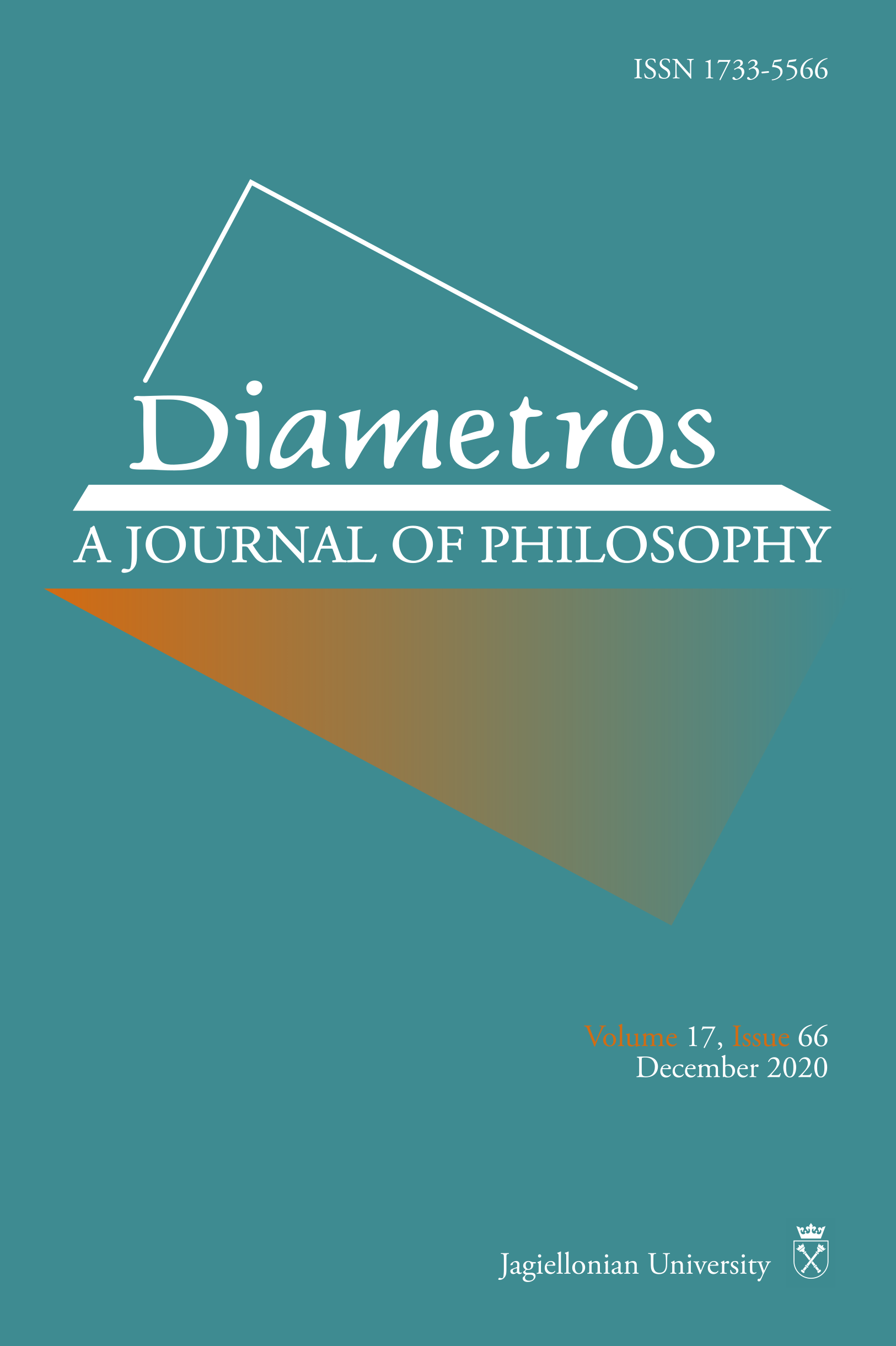Old Times' Sake as a Moral Category
Main Article Content
Abstrakt
In this paper I discuss the notion of old times’ sake, one which is hardly discussed by moral philosophers, and claim that it serves as a moral reason for us to act on behalf of the people we used to cherish: former friends, colleagues, neighbors, or spouses. While our relationship with them has ended, the building-blocks of our identity will continue to bear their fingerprints, and they will ever be an important part of our biography. Acting for old times’ sake reflects both our caring about them, and our caring about our own past, biography, and accumulated identity. Why the relationship has ceased will of course affect our attitude towards them. Although old times’ sake might not always be a decisive factor, it still serves as a moral reason for action.
Article Details
Numer
Dział
Teksty zaproponowane do naszego czasopisma nie powinny być nigdzie publikowane przed ukazaniem się w „Diametros”. Wraz z przesłaniem swojego utworu redakcji autor akceptuje, że w momencie zakwalifikowania tekstu do publikacji czasopismo „Diametros” będzie stosowało licencję the Attribution 4.0 International (CC BY 4.0). Na podstawie tej licencji autorzy zgadzają się, że ich prace mogą być zgodnie z prawem ponownie wykorzystywane do jakichkolwiek celów bez konieczności uzyskania uprzedniej zgody ze strony autora lub wydawcy. Każdy może prace te czytać, pobierać, kopiować, drukować, rozpowszechniać oraz przetwarzać, pod warunkiem poprawnego oznaczenia autorstwa oraz oryginalnego miejsca publikacji. Autorzy zachowują prawa autorskie do swoich utworów bez żadnych innych ograniczeń. Pełna informacja na temat licencji CC BY: https://creativecommons.org/licenses/by/4.0/legalcode.
Jak cytować
Bibliografia
Aristotle (1906), The Nicomachean Ethics, trans. F.H. Peters, Kegan Paul, London.
Blustein J. (2008), The Moral Demands of Memory, Cambridge University Press, New York. DOI: https://doi.org/10.1017/CBO9780511818615
Carreras A. (2012), “Aristotle on Other-Selfhood and Reciprocal Shaping,” History of Philosophy Quarterly 29 (4): 319–339.
Cocking D., Kennett J. (1998), “Friendship and the Self,” Ethics 108 (3): 502–527. DOI: https://doi.org/10.1086/233824
Crépel A.-L. (2014), “Friendship: Shaping Ourselves,” International Journal of Philosophical Studies 22 (2): 184–198. DOI: https://doi.org/10.1080/09672559.2014.896631
Kant I. (1964), The Doctrine of Virtue: Part II of the Metaphysic of Morals, trans. M.J. Gregor, University of Pennsylvania Press, Philadelphia.
Margalit A. (2002), The Ethics of Memory, Harvard University Press, Cambridge, Massachusetts, London.
Murphy J. (1982), “Forgiveness and Resentment,” Midwest Studies in Philosophy 7 (1): 503–516. DOI: https://doi.org/10.1111/j.1475-4975.1982.tb00106.x
Richards N. (1988), “Forgiveness,” Ethics 99 (1): 77–97. DOI: https://doi.org/10.1086/293036
Stroud S. (2016), “Epistemic Partiality in Friendship,” Ethics 116 (3): 498–524. DOI: https://doi.org/10.1086/500337
